LINCOLN: The Movie - Spielberg Style, What it Says About American Conservatism and Liberalism

BEFORE MY MEMORY FADES, which happens way faster as the years pile on, I wanted to record my thoughts after having just returned from watching "Lincoln", produced by Steven Spielberg which is about the last few months of Abraham Lincoln's life and therefore his Presidency. Coincidentally, later that evening, I read an opinion piece former Governor Jennifer Granholm wrote for Politico.com giving her recommendations as to what the GOP needs to do to recover from the "November 2012 surprise" ... yes, as you will see, these two topics are connected.
Section 1. Neither slavery nor involuntary servitude, except as a punishment for crime whereof the party shall have been duly convicted, shall exist within the United States, or any places subject to their jurisdiction.
Section 2 Congress shall have the power to enforce this article with appropriate legislation.
A basic statement of human rights which never should have had to be incorporated the law of the land as the 13th Amendment to the U.S. Constitution, passed in 1864 by the Senate and final by the House of Representatives, on its second attempt, on January 31, 1865. It was ratified by the requisite number of states and on December 6, 1865 became the law; fulfilling a goal Thomas Jefferson, George Washington, John Adams, Alexander Hamilton, and many signers of the Constitution had fought for almost 100 years before and had hoped, one day, would come to pass. It would be nearly 100 more years before the final piece of legislation, the 1964 Civil Rights Act, shut the last legal doors to the disenfranchisement of a segment of the American population by those who still believe, even today, that Vice President John C. Calhoun wasn't necessarily wrong when he said in his 1837 speech, Slavery, a Positive Good:
VICE PRESIDENT JOHN C. CALHOUN

"But I take higher ground. I hold that in the present state of civilization, where two races of different origin, and distinguished by color, and other physical differences, as well as intellectual, are brought together, the relation now existing in the slave-holding States between the two, is, instead of an evil, a good - a positive good"
It should also be noted that Calhoun was Secretary of State, Secretary of War, a Senator and Representative from South Carolina.
It was President Lincoln's monumental fight to insure the passage of the 13th Amendment before the conclusion of the Civil War to which Spielberg and Daniel Day-Lewis bring their unparalleled genius. And it is the stark comparison of beliefs between the protagonist and antagonist in the battle royal over human dignity which leads me to include Governor Granholm's article in this hub for in it, she discusses the GOP's ideological problem of believing "freedom" only applies to business and not to individuals. Lincoln is one of those movies I will purchase as a DVD to keep, and I only buy 1 or 2 a year now a days; I highly recommend seeing it for reasons on many levels, besides being an extremely entertaining and wonderful portrayal of a bit of history about a President and an action that changed the course of history.
EDMUND BURKE
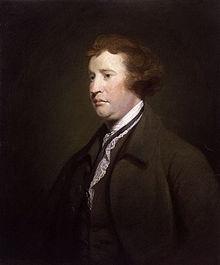
LINCOLN'S STORY LINES
There were three major story lines, from my limited ability to discern them. One was the political machinations that President Lincoln used to gain his end of having the 13th Amendment passed. Another was the battle between Principle and Pragmatism, as I like to call it, where, because the latter had the upper hand, Lincoln was successful. A third is the conflict between Principles, where good men differ on fundamentally important issues. It is these last two issues which have my attention because, 1) I feel it is the third theme that is the root of all of the conflict we see today in our political system and 2) it is only when Pragmatism wins over Principle in the battle for the People's mind will this country ever have a chance to become a Great country that actually practices what it preaches to the rest of the world.
At the heart of the fight over the 13th Amendment, and therefore Spielberg's Lincoln, is "what is meant by liberty and equality and to whom do those terms apply?". This is also at the core of Granholm's opinion piece, when you get right down to it. One facet of Conservatism is its belief that differences between gender, races, and wealth are a "natural", God-ordained state of being. I don't say that out of any malice, only as a statement of fact. If I made this statement on the floor of the House in 1865, I would have each Democrat there nodding their head in agreement, remember Democrat John Calhoun's quote above. Further, if I were to ask Edmund Burke, credited with being the "father" of modern Conservatism, in 1765 if these conservative Democratic sentiments represented his beliefs correctly, you will be able to see from another article I am working on defining Conservatism that he would say yes, it does. And, I know for a fact that today, many who live in the South, where I do, also agree for they have made no bones about telling me they feel this way. The difference is, in the former two cases it was "not" politically incorrect to admit it, but today of course, no politician would cross that line.
The use of "God-ordained" in the previous paragraph was not hyperbole. The following is an excerpt from Rev. Thornton Stringfellow's "A Brief Examination of Scripture Testimony on the Institution of Slavery" (1841) in the defense of slavery, common at the time from many Protestant pulpits:
"With men from the North, I have observed for many years a palpable ignorance of the divine will, in reference to the institution of slavery. I have seen but a few, who made the Bible their study, that had obtained a knowledge of what it did reveal on this subject. Of late, their denunciation of slavery as a sin, is loud and long.
I propose, therefore, to examine the sacred volume briefly, and if I am not greatly mistaken, I shall be able to make it appear that the institution of slavery has received, in the first place,
1st. The sanction of the Almighty in the Patriarchal age.
2d. That it was incorporated into the only National Constitution which ever emanated from God.
3d. That its legality was recognized, and its relative duties regulated, by Jesus Christ in his kingdom; and
4th. That it is full of mercy.
The first recorded language which was ever uttered in relation to slavery, is the inspired language of Noah. In God's stead he says, "Cursed be Canaan;" "a servant of servants shall he be to his brethren." "Blessed be the Lord God of Shem; and Canaan shall be his servant." "God shall enlarge Japheth, and he shall dwell in the tents of Shem; and Canaan shall be his servant." Gen. ix. 25, 26, 27. Here language is used, showing the favor which God would exercise to the posterity of Shem and Japheth, while they were holding the posterity of Ham in a state of abject bondage....God decreed slavery--and shows in that decree, tokens of good-will to the master.... "
Lincoln brings this conservative characteristic into clear focus. There are also modern social-behavioral studies that clearly indicate this idea of "class" difference being a natural state-of-being is still deeply ingrained in conservative ideology.
I have spent many words on this point because conservatives today often publicly deny this facet is part of their philosophical legacy even though they see nothing intrinsically wrong with it. Why? Because from all I have now read over the last two years, it is as natural for conservatives to believe that all humans are equal in the eyes of God, but also think they are not equal to each other as it is for me to believe, without hesitation, that humans are equal to each other. This leads us, then, to the other side of the great conflict portrayed on the big screen.
U.S. REPRESENTATIVE THADDEUS STEVENS (R-PA)
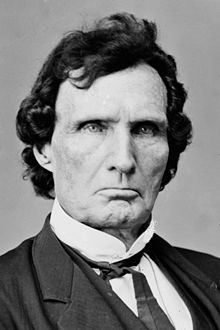
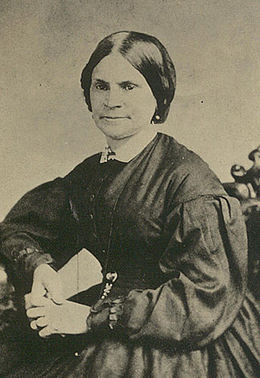
PRESIDENT LINCOLN'S REPUBLICAN DILEMMA
The Republicans, you will find, were of two camps, the radicals and the moderates. The radicals believed absolutely in total emancipation of the blacks while the moderates only saw a need to end slavery because they truly felt it was immoral; even so, that didn't mean the timetable had to be fast; total emancipation wasn't necessarily their goal. The conservative Democrats also had their moderate element as well, people who had niggling to significant moral problems with slavery itself, but still did not believe the races were or should ever be equal; these were Lincoln's targets in his drive to get the necessary 20 Democratic votes needed to pass the amendment in the House; political machinations, don't you see.
Not only did President Lincoln have to convince 20 Democrats to absorb the slings and arrows of their own Party for the good of the country, he had to do the same with the Radical Republicans of his own Party. The Radicals were the liberals of the political spectrum of the day. Their leader was Representative Thaddeus Stevens (R-PA); think of Senator Shumer (D-NY) and Reps Pelosi (D-CA) and Frank (D-MA) rolled up into one. (If you haven't noticed yet. or are confused, the Democrats of 1865 are the Republicans of 2012 and the Republicans of 1865 are today's Democrats with the Radical Republicans being the Left wing of the Party.)
The Radical Republicans were as convinced of the righteousness of their Principled beliefs as the conservative Democrats were of theirs; and this presented a serious dilemma for President Lincoln but, in one respect, an easier solution. Where Lincoln had to convince 20 individual Democrats to vote against deeply held views, he only needed to convince one Radical Republican, Rep Thaddeus Stevens. (if you squish the craggy visage of Rep. Stevens, in the photo above, such that it is somewhat more square, you might be able to picture the equally craggy face of the actor who played Stevens, Tommy Lee Jones.) Why? Because in convincing Stevens, you just convinced the rest of the Radical Republicans.
Where the Democrats believed the 13th Amendment went way too far in promoting Black liberty, the Radical Republicans thought it didn't go nearly far enough. In fact, they wanted full and immediate emancipation or nothing at all1. This is where Lincoln used one of his famous metaphors with Steven's, which I am sure to mangle, but, as Lincoln and Stevens were arguing about the moral correctness of the radical's position and that where Stevens they needed to achieve it all, now because that was is what morality required, Lincoln countered with something like this, "A compass will always point you to true North and if you follow its path, you will surely never reach what you seek, for you cannot survive the swamps, rivers, and chasms you must cross on your way. If, however, you take your time, plan, and find routes around these obstacles, you will almost always reach your goal." (Please, nobody correct me in saying that a compass points you to magnetic North, I know that, but it takes away from the story.) Thaddeus Stevens pondered this and many other arguments Abraham Lincoln made becoming a Pragmatist in the process.
President Lincoln had a different problem with the moderate Republicans, however. They were more interested in an immediate end of the Civil War with a negotiated peace with the South than in freeing the slaves from human bondage. These men were confident that they could pass the 13th Amendment after the conclusion of the war, a position Lincoln was certain was wrong; Abraham Lincoln was absolute in his reasoning that once the South rejoins the Union and Congress, it will be many years before the 13th Amendment will have a chance of success again. With this group, however, he made a compromise which led to their unanimous support for the amendment; these men were Pragmatists all. I won't go into the compromise as it would ruin the movie for you if you choose to go see it.
1 Notice the parallel here with Obamacare. The national polls always "appeared" to show more Americans disapproved of Obamacare than approved of it, initially by large margins, it seemed ... it seemed. This is where that old saying about statistics and lying comes into play. Conservatives successfully used the national, top-level poll numbers to convince everybody the nation was against the Principle for which Obamacare stood; nothing could be further from the truth, it is just that the Democrats or Obama failed to make the opposite case. My own internal hub poll on Obamacare, if it were reported at the top level might read "55% Against" and "45% For"; not too different from the actual national polls, actually. But, break it down one level, you get something that tells an entirely different picture. The 56% Against really consisted of 33% who believe it should be killed, 6% who believe it should be reduced, AND, 17% who disapprove of Obamacare because it didn't go far enough (I split the 35% "didn't go far enough" votes as 17% Against and 18% For). In reality, the percentages break down to 67% who favor some sort of Obamacare while only 33% disagree with the concept altogether. The numbers I just presented agree with similar detail I have looked at in actual national polls and have reported elsewhere.
LINCOLN'S KENTUCKY BIRTHPLACE
Click thumbnail to view full-size









INTERWEAVING IT ALL
GOVERNOR JENNIFER GRANHOLM MADE THE FOLLOWING COMMENT in her opinion piece,
"The reason why the GOP will continue to lose elections is because they do not understand that you cannot be the freedom party if you want to regulate the most intimate and sacred of people’s personal lives. (Read more: http://www.politico.com/news/stories/1112/83977_Page2.html#ixzz2CjFHyyj1)"
If you see Lincoln, compare the above thoughts to what you learn about the Democrats. While I think the thrust of Governor Granholm's article is spot on, its target is not; that is easy to see now by comparison. Rather than provide suggestions for improvement to the GOP, the hero's of Lincoln, she ought to have tried to help Conservatives. The reason is obvious, but I will state it anyway (because I always hated similar phrases in Calculus texts), while the philosophical make-up of a particular Party may change over time, the fundamental philosophies do not.
For this discussion, I will stick with the two polar extremes of the political spectrum in America, "radical" and "reactionary"; those two terms have maintained their meaning throughout time while terms like "liberal" have not. In Lincoln, you see examples of both with one wing of the Republican Party being radical and the one wing of the Democratic Party being reactionary; then you have the middle ground, the moderate Republicans and the 20 moderate Democrats (there is actually more to that story, but I am not telling). Compare that to 2012, where you have three wings in the Democratic Party, a radical wing, a moderate wing, and a diminishing conservative wing. In the Republican Party, however, you only have a very large contingent of reactionaries and a disappearing contingent of moderates, I doubt they could muster 20 moderate Republicans in the House today. For comparison,1970, the Republican Party was much more inclusive with three wings and, in those days, the moderates dominating.
In 1865, the conservative Democrats had a near lock on all Democratic votes in the House, just as the conservative Republicans have today with their cohorts. To see how President Lincoln managed to peel 20 of these away, you will need to see Lincoln. read the book, or read this hub in about a year. As one famous phrase has it, and I suspect Obama might even agree with it, "Obama is no Lincoln". Also, times were different then and a President could, eh hmm, exert certain pressures which they can't today ... and get away with it. But, in the end you saw a President caught between a block of totally uncompromising Democrats which could not be reached by reason or fact to breach their Principles for the good of the whole and a similarly oriented delegate of radical Republicans, who would seemingly want to take down the nation, rather than give in to their Principles (think of the debt ceiling crisis and the failed super-committee). Not give in, that is, until reason and logic, i.e. Pragmatism, such as that used between Lincoln and Stevens, finally broke through the wall that Principle builds up to protect itself. Principle, which, when left on its own and put into practice, ends up decaying from the inside out and will ultimately bring down what it brought up, for it becomes tyranical and the People will revolt. Principal, as we saw in Lincoln, only works when tempered with Pragmatism. That, to me, is the major take-away from Lincoln.
The ending of Lincoln is no surprise, everybody should know it, the House passed the amendment. What many may not know, at least I didn't, was how close the margin was. Even though the end of the Civil War was near, where hundreds of thousands of American lives, both Blue and Gray, died in a war and whose fundamental cause was whether it was proper, under the Constitution and Declaration of Independence, to keep one human being in bondage and enslaved to another for economic reasons; the margin of victory was only 2 votes! This is America's heritage, it took an amazing amount of effort to convince just 20 extremely brave men, Pragmatists, to thwart the might and retribution of their Party and vote their conscience in terms of what was right for both the nation and, more importantly, humanity.
LINCOLN'S BOYHOOD HOME - KNOB CREEK, KY
Click thumbnail to view full-size





© 2012 Scott Belford







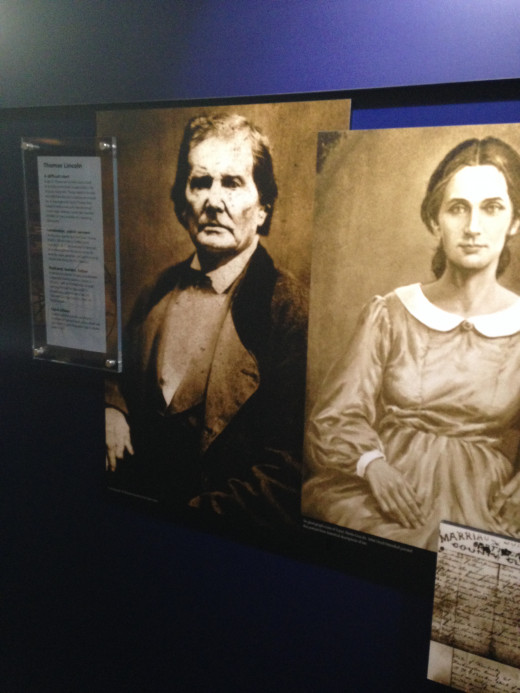










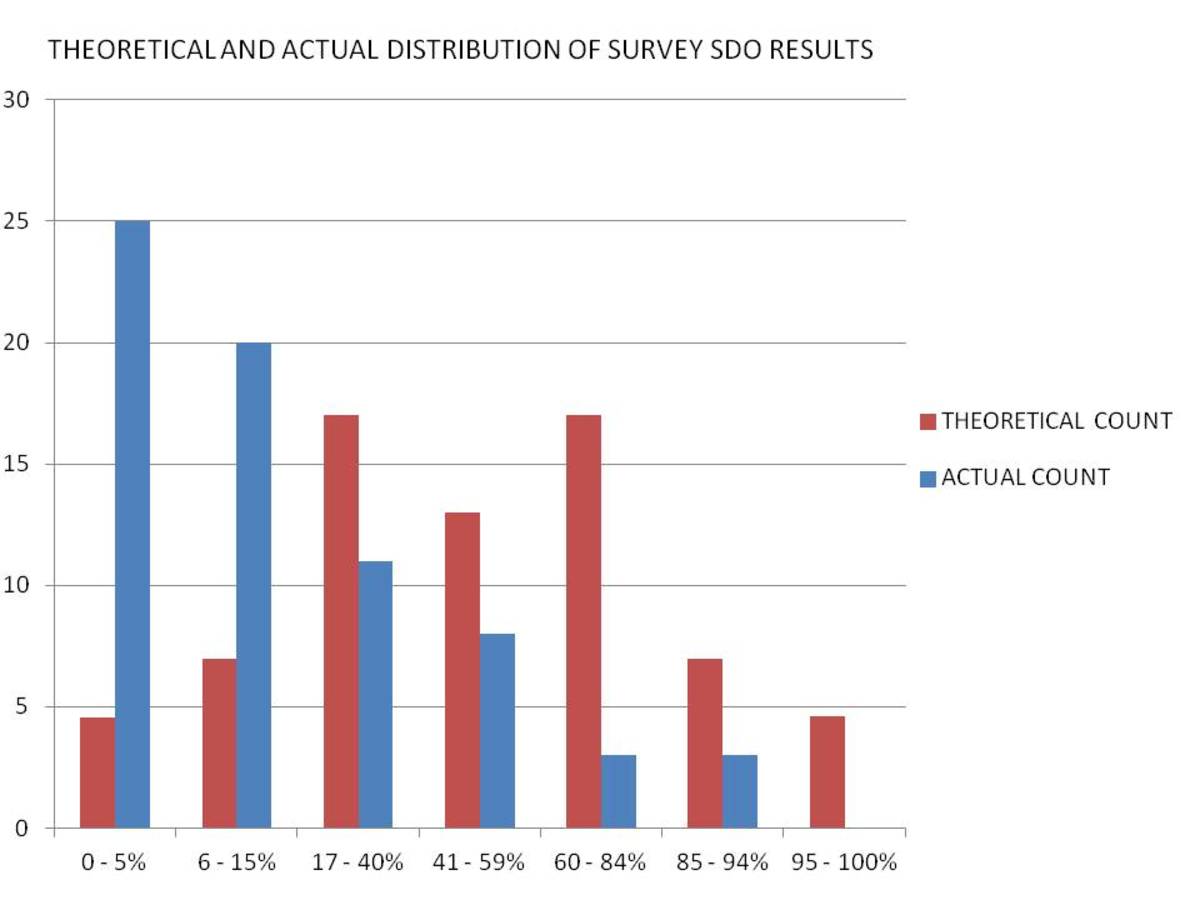


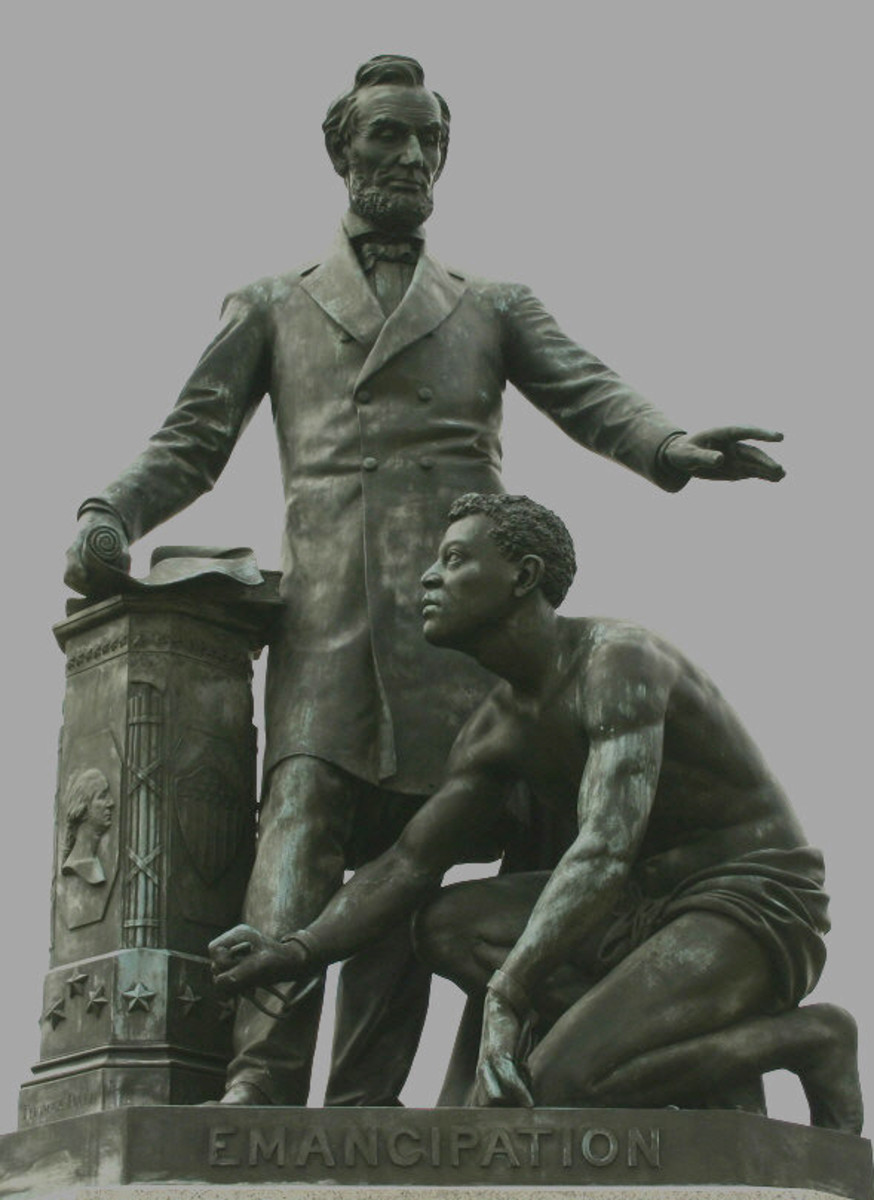

![American Politics: The BIG LIE in Politics, From The Republican Presidential Convention [124] American Politics: The BIG LIE in Politics, From The Republican Presidential Convention [124]](https://images.saymedia-content.com/.image/t_share/MTc2NDYyMjI1MzEyNjU1MzIy/the-big-lie-in-politics-from-the-conservative-side.jpg)
